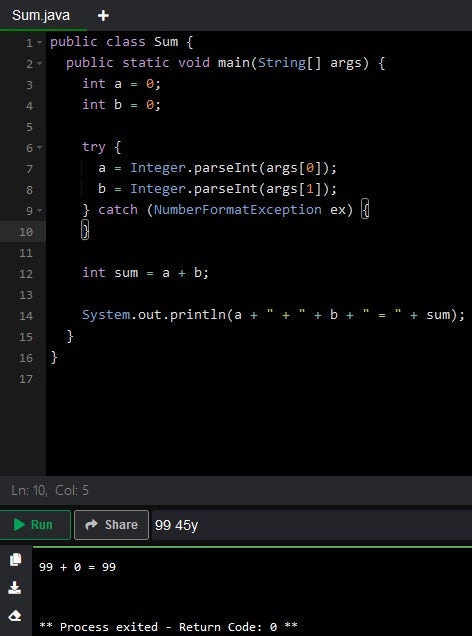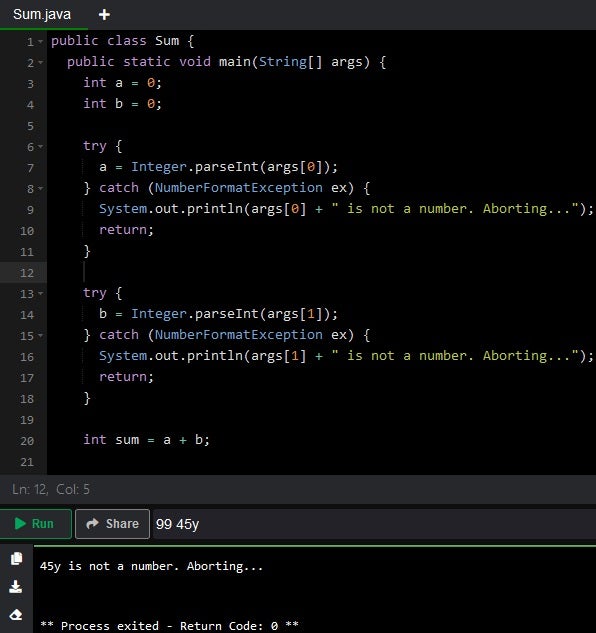In laptop programming, absolute best practices are a suite of casual regulations that many builders practice to reinforce instrument high quality, clarity, and maintainability. Perfect practices are particularly advisable the place an utility stays in use for lengthy sessions of time, in order that it used to be first of all advanced via one group after which due to this fact maintained via a special staff of other folks.
The Operating with Java Variables article offered quite a few absolute best practices for variable naming. This collection will now cross a lot additional and canopy such subjects as elegance member scoping, check out/catch blocks, or even the formatting of continuing values. This primary installment will supply an summary of the most efficient practices for Java that we will be able to be exploring over the following a number of weeks, at the side of an evidence of the primary 3 pieces within the most sensible absolute best practices for Java programming record.
Java Programming Perfect Practices at a Look
Even supposing your entire record of Java Perfect Practices generally is a long one, there are a number of which can be regarded as to be a just right beginning position for coders who’re taking their first steps into bettering their code high quality, together with the use of correct naming conventions, make elegance individuals personal, keeping off using empty catch blocks, keeping off reminiscence leaks, and correctly commenting code blocks:
- Use Right kind Naming Conventions
- Magnificence Individuals Will have to be Personal
- Use Underscores in long Numeric Literals
- Steer clear of empty catch Blocks
- Use StringBuilder or StringBuffer for String Concatenation
- Steer clear of Redundant Initializations
- The use of enhanced for loops as a substitute of for loops with a counter
- Right kind dealing with of Null Pointer Exceptions
- Flow or Double: which is the precise selection?
- Use of unmarried quotes and double quotes
- Heading off Reminiscence leaks
- Go back Empty Collections as a substitute of returning Null components
- Environment friendly use of Strings
- Pointless Gadgets Advent
- Right kind Commenting
Magnificence Individuals in Java Will have to be Personal
In Java, the extra inaccessible the individuals of a category are, the easier! Step one is to make use of the personal get entry to modifier. The objective is to foster supreme encapsulation, which is without doubt one of the basic ideas of object-oriented programming (OOP). All-too-often, new builders fail to correctly assign get entry to modifiers to the categories or wish to stay them public to make issues more straightforward.
Imagine this elegance the place fields are made public:
public elegance BandMember {
public String title;
public String tool;
}
Magnificence encapsulation is compromised right here as any person can alternate those values immediately like so:
BandMember billy = new BandMember(); billy.title = "George"; billy.tool = "drums";
The use of personal get entry to modifier with elegance individuals helps to keep the fields hidden combating a consumer from converting the knowledge excluding by means of setter strategies:
public elegance BandMember {
personal String title;
personal String tool;
public void setName(String title) {
this.title = title;
}
public void setInstrument(String tool)
this.tool = tool;
}
}
Setters also are the best position to position validation code and/or housework duties akin to incrementing a counter.
You’ll be informed extra about get entry to modifiers in our instructional: Review of Java Modifiers.
We even have a nice instructional masking the idea that of Java Encapsulation if you want a refresher.
Use Underscores in Long Numeric Literals
Because of a Java 7 replace, builders can now write long numeric literals that experience larger clarity via together with underscores (_). Listed below are some long numeric literals sooner than underscores have been authorized:
int minUploadSize = 05437326; lengthy debitBalance = 5000000000000000L; waft pi = 3.141592653589F;
I feel you’re going to agree that underscores make the values extra readable:
int minUploadSize = 05_437_326; lengthy debitBalance = 5_000_000_000_000_000L; waft pi = 3.141_592_653_589F;
Steer clear of Empty Catch Blocks
This is a very dangerous addiction to go away catch blocks empty, for 2 causes: it may both purpose this system to silently fail, or proceed alongside as though not anything took place. Either one of those results could make debugging considerably tougher.
Imagine the next program which calculates sum of 2 numbers from command-line arguments:
public elegance Sum {
public static void major(String[] args) {
int a = 0;
int b = 0;
check out {
a = Integer.parseInt(args[0]);
b = Integer.parseInt(args[1]);
} catch (NumberFormatException ex) {
}
int sum = a + b;
Device.out.println(a + " + " + b + " = " + sum);
}
}
Javaâs parseInt() manner throws a NumberFormatException, requiring the developer to enclose its invocation inside a check out/catch block. Sadly, this actual developer selected to forget about thrown exceptions! In consequence, passing in an invalid argument, akin to â45yâ will purpose the related variable to be populated with the default for its sort, which is 0 for an int:

Â
Typically, when catching an exception, programmers will have to take a number of of the next 3 movements:
- On the very least, tell the consumer concerning the exception, both get them to re-enter the invalid worth or allow them to know that this system should abort upfront.
- Log the exception the use of JDK Logging or Log4J.
- Wrap and re-throw the exception as a brand new, extra application-specific, exception.
Here’s our Sum utility rewritten to tell the consumer that an enter used to be invalid and that this system might be aborting because of this:
public elegance Sum {
public static void major(String[] args) {
int a = 0;
int b = 0;
check out {
a = Integer.parseInt(args[0]);
} catch (NumberFormatException ex) {
Device.out.println(args[0] + " isn't a bunch. Aborting...");
go back;
}
check out {
b = Integer.parseInt(args[1]);
} catch (NumberFormatException ex) {
Device.out.println(args[1] + " isn't a bunch. Aborting...");
go back;
}
int sum = a + b;
Device.out.println(a + " + " + b + " = " + sum);
}
}
We will apply the effects underneath:

Â
Ultimate Ideas on Java Perfect Practices
On this first installment of the Java Perfect Practices collection, we discovered concerning the most sensible 15 Java absolute best practices and explored elegance member encapsulation, using underscores in long numeric literals, and keeping off empty catch blocks. Subsequent week, we will be able to be taking a look at String concatenation achieved proper, easy methods to keep away from redundant initializations, in addition to the use of enhanced for loops.